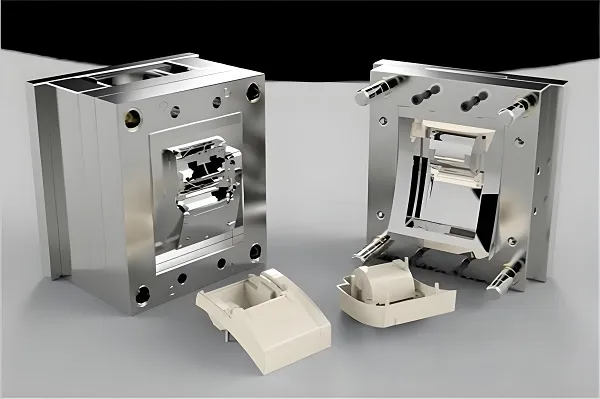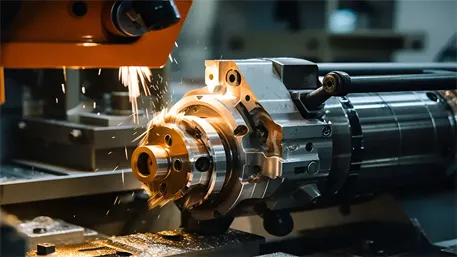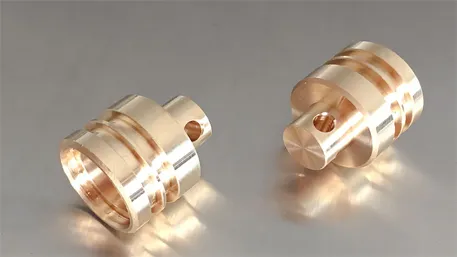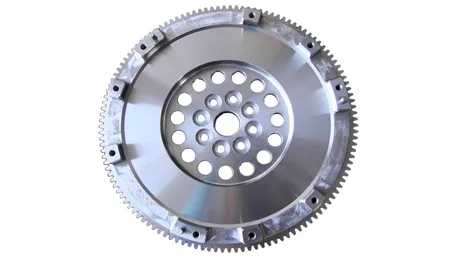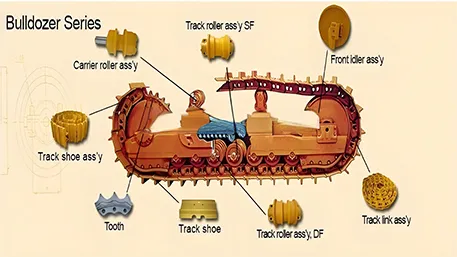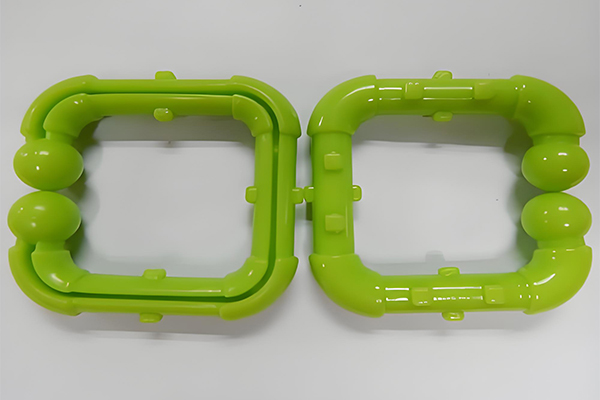In the field of industrial manufacturing, customized injection – molded parts, with their advantages of high efficiency, high precision, and low cost, have become key components in industries such as machinery, electronics, and energy. This article systematically analyzes the technical logic and industry value of customized industrial injection – molded parts from aspects including material selection, process technology, application scenarios, and quality control, providing professional decision – making references for industrial enterprises.
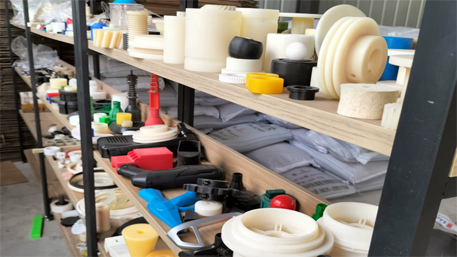
I. Materials Engineering: Precise Matching of High – Performance and Functionality
The materials for customized industrial injection – molded parts need to meet stringent requirements such as high strength, high temperature resistance, and chemical corrosion resistance. The following are the key characteristics and typical applications of commonly used engineering plastics:
Polyoxymethylene (POM)
Characteristics: Tensile strength of 60 – 70 MPa, Rockwell hardness (HRR) of 118 – 122, excellent wear resistance (friction coefficient of 0.1 – 0.3), and resistance to organic solvents.
Applications: High – load scenarios such as precision gears, bearings, and valve fittings, as its self – lubricating property and rigidity are close to those of metals.
Polyamide (PA, Nylon)
Characteristics: Tensile strength of 70 – 90 MPa, outstanding oil resistance and fatigue resistance, and long – term service temperature ranging from – 40°C to 120°C.
Applications: Automotive engine components (such as intake manifolds) and transmission gears of industrial machinery, combining strength and temperature resistance.
Polyphenylene Sulfide (PPS)
Characteristics: Tensile strength of 65 – 85 MPa, heat distortion temperature of 260°C (1.82 MPa), and resistance to chemical corrosion (strong acids and alkalis).
Applications: Chemical pipelines, pump impellers, and electronic connectors, suitable for high – temperature and highly corrosive environments.
Polyetheretherketone (PEEK)
Characteristics: Tensile strength of 90 – 100 MPa, long – term service temperature of 250°C, radiation resistance, hydrolysis resistance, and good biocompatibility.
Applications: Aerospace components and medical implant devices (such as intervertebral fusion devices), meeting the requirements of extreme environments.
Carbon Fiber Reinforced Plastic (CFRP)
Characteristics: Tensile strength of 180 – 220 MPa, flexural modulus of 12 – 15 GPa, and a density of only 1.25 g/cm³.
Applications: Lightweight structural parts of industrial robots and UAV frames, achieving a balance between high strength and low weight.
Through precise material selection, customized injection – molded parts can work stably in the temperature range of – 60°C to 300°C, meeting the strict requirements for durability and reliability in the industrial field.
II. Process Technology: In – Depth Synergy of Precision Manufacturing and Efficiency Enhancement
Mold Flow Analysis and Mold Optimization
Use simulation software such as Moldflow to simulate the injection molding process, predict melt flow, cooling uniformity, and residual stress, and control the warpage deformation of plastic parts within 0.1 mm/m.
Introduce conformal cooling technology in mold design, which can shorten the cooling time by 30%, increase production efficiency by 25%, and ensure the molding accuracy of complex structures (such as deep holes and thin walls).
Multi – Material Injection Molding and Insert Technology
Multi – material injection molding (such as 2K injection molding) can combine hard plastic (such as PPS) and soft plastic (such as TPU) in the same plastic part to achieve functional integration (such as the hard – soft combination design of seals).
Insert injection molding technology embeds metals, ceramics, or electronic components into plastic parts to improve the composite performance of parts (such as metal insert injection molding of conductive plastics).
High – Precision Injection Molding and Post – Processing
Use high – precision injection molding machines (accuracy of ±0.001 mm) to produce precision gears, sensor housings, and other parts, with dimensional tolerances controlled within IT7 level.
Post – processing techniques (such as CNC finishing and surface quenching) further improve the dimensional accuracy and surface hardness of plastic parts to meet the strict requirements of industrial assembly.
III. Application Scenarios: Customized Solutions for the Entire Industrial Field
Machinery Manufacturing
Transmission Components: POM – injection – molded gears and racks are wear – resistant and low – noise, replacing traditional metal parts and reducing costs by 30%.
Seals: Silicone rubber or fluororubber – injection – molded O – rings and gaskets are resistant to high pressure and high temperature, suitable for hydraulic systems.
Electronics and Electrical
Connectors: LCP – injection – molded high – frequency connectors have a low dielectric constant (Dk = 2.9) to ensure stable signal transmission and a temperature resistance of 260°C.
Housings and Brackets: ABS or PC – injection – molded electrical housings combine strength and insulation, and can achieve electromagnetic shielding through in – mold metallization (IMM).
Automotive Industry
Engine Components: PA – injection – molded intake manifolds reduce weight by 40% and are resistant to oil corrosion, improving fuel efficiency.
Lightweight Structural Parts: CFRP – injection – molded automotive chassis parts reduce weight by 50% while maintaining high strength, in line with the lightweight trend of new energy vehicles.
Energy and Chemical Industry
Pipeline Fittings: PPS – injection – molded valves and elbows are resistant to strong acids and alkalis and can replace stainless steel, reducing costs by 50%.
Sealing Gaskets: PTFE – injection – molded corrosion – resistant gaskets are suitable for the high – temperature and high – pressure environments of petrochemical equipment.
IV. Quality Control: Strict Adherence to Industrial Standards
Material Compliance Certification
Materials need to pass industry certifications such as ISO 10993 (medical), AS9100 (aerospace), and UL94 (flame – retardant) to ensure compliance with the safety and performance requirements of specific fields.
For special materials (such as PEEK), melt flow rate testing (MFR) and molecular weight analysis are carried out to ensure batch stability.
Precision Testing System
Coordinate measuring machines (CMM) are used to conduct full – size inspections of plastic parts, with key dimension tolerances controlled within ±0.01 mm.
Mechanical property tests (tensile, bending, impact) and environmental tests (salt spray, high – low – temperature cycling) ensure the reliability of products under extreme conditions.
Process Control and Traceability
Use SPC (statistical process control) to monitor injection molding parameters (pressure, temperature, cooling time) in real – time to ensure process stability.
Establish a product traceability system to record the material batches, process parameters, and test data of each batch of plastic parts, realizing full – life – cycle management.
V. Industry Trends and Technological Innovations
Intelligent Manufacturing
Introduce AI algorithms to optimize injection molding process parameters, reduce the number of mold trials, and shorten the mold development cycle by 40%.
Internet of Things (IoT) technology collects equipment data in real – time, predicts equipment failures, and improves production efficiency and stability.
Lightweight and Sustainable Materials
Develop carbon nanotube – reinforced plastics (CNT/PLA) with the goal of achieving a 60% weight reduction while maintaining high strength, applied to the lightweight design of industrial robots.
Promote bio – based materials (such as flax – fiber – reinforced PP) to reduce dependence on fossil fuels and respond to the green manufacturing trend.
Integration of Additive Manufacturing and Injection Molding
3D printing technology is used to quickly produce injection mold prototypes, reducing the mold development time from 4 weeks to 72 hours.
Hybrid manufacturing technology combines injection molding and 3D printing to achieve the integrated molding of complex structures, expanding the design boundaries of industrial plastic parts.
FAQ
Q1: How long is the development cycle of customized industrial injection – molded parts?
A: The cycle depends on the complexity of the parts and the process. Sampling of simple plastic parts takes about 3 – 5 days, mold development takes 2 – 4 weeks, and mass production is adjusted according to the order quantity, with a monthly production capacity of over 500,000 pieces.
Q2: How to ensure the performance of injection – molded parts in a high – temperature environment?
A: Select high – temperature – resistant materials (such as PPS, PEEK), and verify their dimensional stability at the target temperature through the heat distortion temperature (HDT) test.
Q3: Does small – batch customization support high – precision requirements?
A: Yes. By using high – precision injection molding machines and rapid mold technology (such as silicone molds), small – batch production (100 – 1000 pieces) can be achieved, with dimensional tolerances controlled within ±0.02 mm.
Q4: What are the surface treatment options for industrial injection – molded parts?
A: Common treatments include surface quenching (to improve hardness), electroplating (to enhance corrosion resistance), laser marking (for identification and traceability), etc., which can be selected according to functional requirements.
Consult Now and Get a Professional Customized Solution
If you need to customize high – performance industrial injection – molded parts, please feel free to contact us via online message. Our engineering team will:
Recommend suitable engineering plastics (such as POM, PEEK) according to the needs of the industrial scenario;
Provide a full – process solution from mold flow analysis to precision injection molding to ensure the high strength and dimensional accuracy of plastic parts;
Strictly follow industry standards and provide third – party test reports to ensure product quality and reliability.
Whether it is the high – wear – resistance requirement of mechanical transmission or the extreme – environment challenge of aerospace, based on materials science and supported by precision processes, we create customized solutions for you. Click to leave a message and start your professional customization journey!

